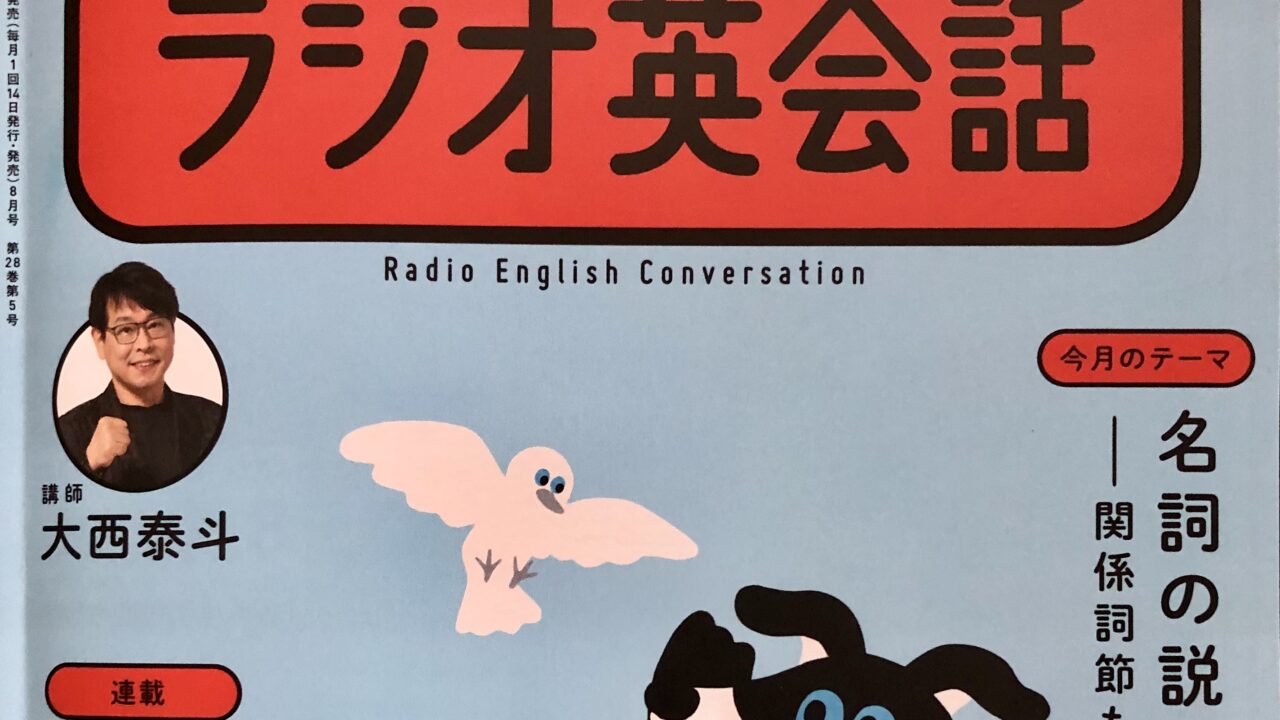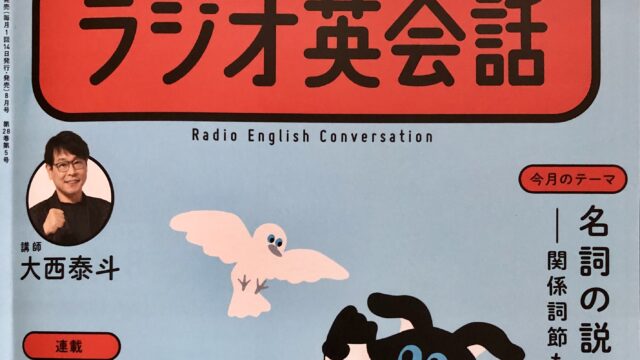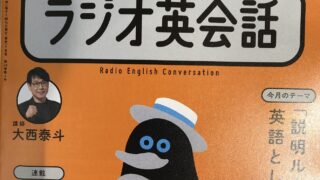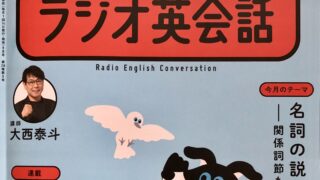July 26, 2021, Monday

July 26, 2021, Monday
Lesson 81 名詞を過去分詞で説明する
☆Words & Phrases
**apparently:
**appear:
**break-in:
Apparently, there was a break-in over the weekend.
**mess:
**scattered:
It’s a mess.
Is anything missing?
Just a few things.
**wonder:
**robber:
**look for:
I wonder what the robbers were looking for.
**ancient:
**artifact:
**fetch a good price:
**illegal:
There are some ancient artifacts that could fetch a good price on the illegal market.
**nobody:
**hurt:
It’s good that nobody was hurt.
☆Grammar & Vocabulary
① I wonder what the robbers were looking for.
what the robbers were looking for は疑問の意味を持たない wh節の文の部品。「泥棒たちは何を探していた(のか)」
wonder は「大きなクエスチョンマークが浮かんでいる」イメージの動詞。
文の意味は「泥棒たちは何を探していたのかしら?」となる。
② There are some ancient artifacts that ( ) could fetch a good price on the illegal market.
some ancient artifacts(=先行詞) を that以下の関係代名詞節が説明している形。that以下could fetch a good price on the illegal market には主語がなく、先行詞が主語となって組み合わさる。「違法マーケットで良い値で売れる – いくつかの古美術品」
☆Key sentence
Luckily, the things stolen aren’t so valuable.
「説明ルール:説明は後ろに置く」は、英語を英語として理解するための重要ルール。the things stolen = 盗まれたもの、と日本語とは順序が逆になる。過去分詞 stolen (steal – stole – stolen) による説明が後ろに置かれる。
>The man pictured in the newspaper article is my grandfather.
The man ← pictured in the newspaper が説明。そしてこれ全体が主語になっている。
>Would you like to see the photos taken on our trip to Bali?
the photos ← taken on our trip to Bali が説明。
☆Grammar in Action
①私の兄によって調理された料理は、私の料理よりもはるかに美味しい。
**dishes:
**tasty:
②私のパソコンから盗まれたファイルは、それほど重要なものではありませんでした。
**hack:
③ここにあるのは、私たちの発掘の間に見つかった遺物です。
**Here + be動詞:
**artifact:
**excavation:
_________________________________________
July 26, 2021, Monday
Lesson 81 名詞を過去分詞で説明する
(日本語訳・解説付き)
☆Words & Phrases
**apparently: (文頭で用いて)どうも~らしい
**appear: 見える
**break-in: 不法侵入、押し入り、窃盗
Apparently, there was a break-in over the weekend.
(どうも週末の間に窃盗があったようなんです)
**mess: 乱雑な状態(むちゃくちゃに散らばっている様子を表す)
**scattered: 散り散りになった、散在する
※ mess の説明のときに、ローザさんがこの単語を使ってました!
It’s a mess.
(めちゃくちゃです/散らかっています)
Is anything missing?
(なにか無くなったものはありますか?)
Just a few things.
(ほんの少し)
**wonder: 不思議に思う、驚く
※頭に???が浮かぶイメージですね
**robber: 泥棒
**look for: 探す
I wonder what the robbers were looking for.
(泥棒たちは何を探していたのでしょうか?)
**ancient: 昔の、古代の
**artifact: 美術品、工芸品
**fetch a good price: 良い値で売れる
**illegal: 違法の
There are some ancient artifacts that could fetch a good price on the illegal market.
(違法マーケットで良い値で売れる古美術品がいくつかあります)
**nobody: 誰も~ない
**hurt: ケガをさせる、傷つける
It’s good that nobody was hurt.
(誰もケガをしなくてよかったです)
☆Grammar & Vocabulary
① I wonder what the robbers were looking for.
(泥棒たちは何を探していたのでしょうか?)
what the robbers were looking for は疑問の意味を持たない wh節の文の部品。「泥棒たちは何を探していた(のか)」
wonder は「大きなクエスチョンマークが浮かんでいる」イメージの動詞。
文の意味は「泥棒たちは何を探していたのかしら?」となる。
② There are some ancient artifacts that ( ) could fetch a good price on the illegal market.
(違法マーケットで良い値で売れる古美術品がいくつかあります)
some ancient artifacts(=先行詞) を that以下の関係代名詞節が説明している形。that以下could fetch a good price on the illegal market には主語がなく、先行詞が主語となって組み合わさる。「違法マーケットで良い値で売れる – いくつかの古美術品」
☆Key sentence
Luckily, the things stolen aren’t so valuable.
(幸いなことに、盗まれたものはそれほど貴重なものではありません)
「説明ルール:説明は後ろに置く」は、英語を英語として理解するための重要ルール。the things stolen = 盗まれたもの、と日本語とは順序が逆になる。過去分詞 stolen (steal – stole – stolen) による説明が後ろに置かれる。
>The man pictured in the newspaper article is my grandfather.
(新聞記事に写真が載った男の人は私の祖父です)
The man ← pictured in the newspaper が説明。そしてこれ全体が主語になっている。
>Would you like to see the photos taken on our trip to Bali?
(私たちのバリ旅行の写真が見たいですか?)
the photos ← taken on our trip to Bali が説明。
☆Grammar in Action
①私の兄によって調理された料理は、私の料理よりもはるかに美味しい。
The dishes cooked by my brother are much tastier than mine.
**dishes: 料理
**tasty: 美味しい
②私のパソコンから盗まれたファイルは、それほど重要なものではありませんでした。
The files hacked from my computer were not so important.
**hack: ハッキングする、コンピューターに不正侵入する
③ここにあるのは、私たちの発掘の間に見つかった遺物です。
Here are some of the artifacts found during our excavations.
**Here + be動詞: ここにあるのは~です
**artifact: (歴史的価値のある)遺物・工芸品
**excavation: 発掘
_________________________________________
July 26, 2021, Monday
Lesson 81 名詞を過去分詞で説明する
(日本語→英語バージョン)
☆Words & Phrases
**(文頭で用いて)どうも~らしい:
**見える:
**不法侵入、押し入り、窃盗:
どうも週末の間に窃盗があったようなんです。
→
**乱雑な状態
** 散り散りになった、散在する
めちゃくちゃです/散らかっています。
→
なにか無くなったものはありますか?
→
ほんの少し。
→
**不思議に思う、驚く:
※頭に???が浮かぶイメージですね
**泥棒:
**探す:
泥棒たちは何を探していたのでしょうか?
→
**昔の、古代の:
**美術品、工芸品:
**良い値で売れる:
**違法の:
違法マーケットで良い値で売れる古美術品がいくつかあります。
→
**誰も~ない
**ケガをさせる、傷つける
誰もケガをしなくてよかったです。
→



